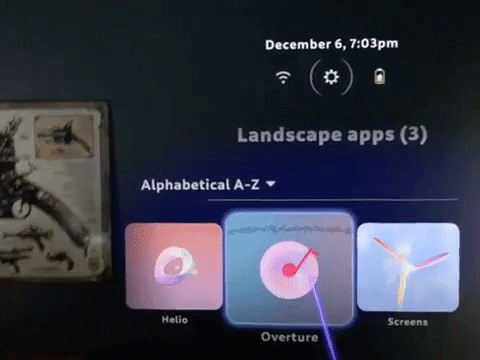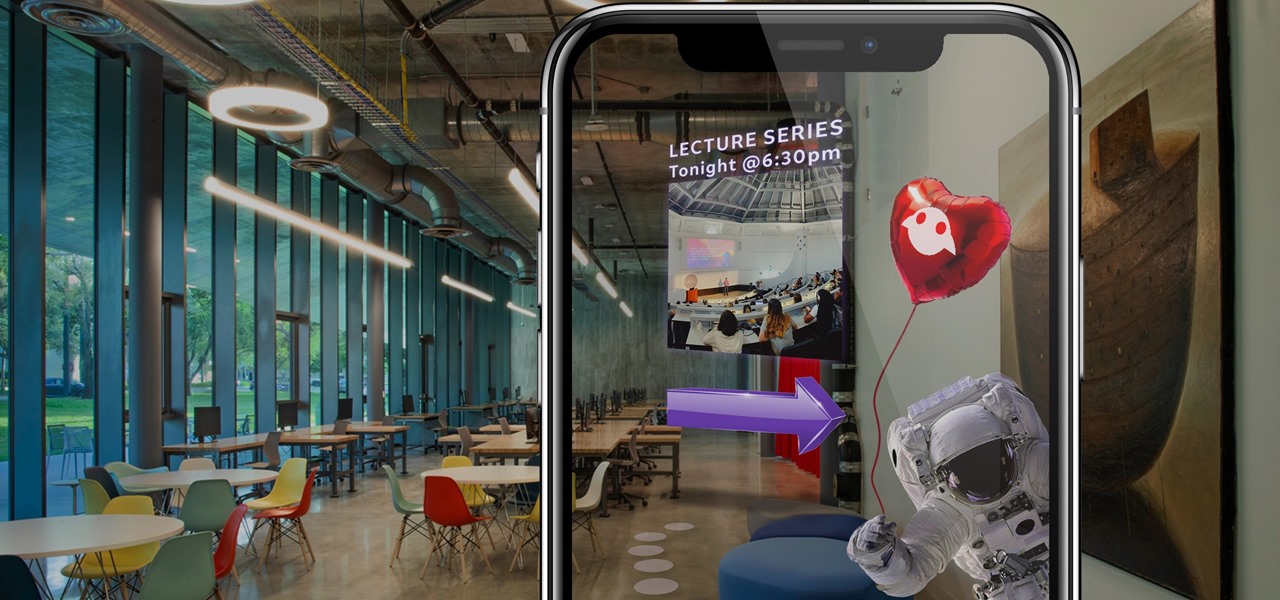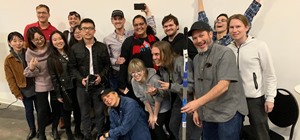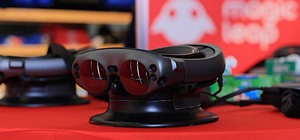Along with rebranding Magic Leap 1 for enterprise customers, Magic Leap has gifted its developer community with some new toys with a tease of more to come in 2020.
On Tuesday, the company not only introduced a consolidated package of new and existing developer tools that it calls The Lab and published new releases of the Lumin SDK and Lumin OS, but it also set the stage for the release of the Magicverse SDK, set to arrive in the first quarter of 2020.
"Spatial computing is an evolving medium for developers and creators. Our goal as a company has always been to make the creative sandbox and canvas infinitely bigger," said Yannick Pellet, senior vice president of software for Magic Leap, in a statement. "Over the past year, we've listened to developer feedback and updated our tools and development environments to simplify the way you create for Magic Leap 1."

From that feedback, Magic Leap has brewed up The Lab. Available for download through the Developer Portal, The Lab replaces the Package Manager and bundles several key developer tools, including ML Remote (now called Zero Iteration), Virtual Room Generator, Device Stream, and the new Device Bridge, into one installation file for Windows and MacOS.
Basically, The Lab is a huge quality of life improvement for developers with a fancy name, giving developers the ability to launch and switch between activities and publish app packages from a single interface. While the other tools are likely familiar to Magic Leap developers, the Device Bridge does bring something new to the party by enabling developers to manage apps, files, and logs on connected devices. Oh, and there's a news panel so that the company can ensure its announcements are read by active developers.
More improvements to app creation for Magic Leap 1 come via the Lumin SDK 0.23. Key additions include Friend Picker APIs that enable multi-user sessions, multiple room support for Zero Iteration, and the ML Movement API that adds the illusion of mass and inertia to virtual objects as they move.
In addition to support for Unity 2019.2 and Unreal 4.23.0, the SDK release serves as the launch for Magic Leap's alliance with PTC and its Vuforia Engine.
"This collaboration will give enterprise and industrial developers the opportunity to leverage the computer vision of Vuforia Engine and pair it with Magic leap 1's powerful hardware," said Pellet.
For developers and end-users, the seventh release of Magic Leap's operating system, LuminOS 0.98, refreshes many corners of the user experience.
"With this update to LuminOS, we've focused on adding new features and improving the overall user experience for Magic Leap," said Pellet in a separate statement regarding LuminOS.
"Historically, we've seen some confusion around entering and exiting an application, so we've created a new set of design requirements to make it more straightforward for developers to implement and for users to understand. Similarly, six degrees of freedom is now consistent across the OS, with new design guidelines."
In addition, LuminOS 0.98 brings users a new Landscape Manager for switching between apps and content, Iris ID unlocking, head pose accuracy improvements, speech input enabled by the "Hey Lumin" wake phrase (that must be enabled through settings), Twitch streaming support, and the ability to recognize when users are holding a controller (facilitated by a new API in Lumin SDK 0.23).
For web developers, Magic Leap has introduced Progressive Web Apps that enable users to save web experiences to their home screen (like home screen web shortcuts for iOS and Android). For Helio, the company has added support for page rotation and established 3D CSS transforms for web content.
Magic Leap has also open-sourced Prismatic 2.0, its JavaScript library for 3D content in Helio, and brought Helio into full compliance with the WebXR specification.
If all of that wasn't enough, Magic Leap also launched MagicScript, an open-source, cross-platform JavaScript language. MagicScript enables developers to write apps that work on iOS, Android, and Lumin OS. Being able to deploy cross-platform apps is a key distinction for the forthcoming Magicverse.
And with that, it looks like the Magicverse is finally about to evolve from concept to reality. Magic Leap's flavor of AR cloud plans to deliver multi-user experiences with persistent content between Magic Leap, iOS, and Android devices. In addition to MagicScript, developers will be able to build Magiverse-compatible apps via Swift and Unity. The SDK will also provide tools for syncing tracked environments and localization and the SDK will facilitate the creation and curation of mapped areas through Magic Leap so that all devices participating in the experience have access to more robust environmental data.
"Over the last few months, engineers have been wandering around our offices with all sorts of mobile devices, showing their colleagues a Magicverse deployment at our headquarters," said Pellet. "We recently started using this to give our visitors a digital tour of our building through Magic Leap and mobile devices. Today, many of these features are being tested by our partners, and while this is only the start of what the Magicverse will become, we're excited to see what you do with these tools next year."
Back in October, Magic Leap chief product officer Omar Khan confirmed the arrival of the Magicverse SDK during the first quarter of 2020. With Tuesday's announcements, Pellet has narrowed down its release to coincide with the next update of the Lumin SDK and Lumin OS (which will make it easier to create co-presence and sharing apps) at the end of 2020.
"The ultimate goal of our Magicverse platform is to build a system of systems that brings the physical and digital worlds together as one," said Pellet. "This infrastructure empowers developers to create huge, multi-user online experiences for consumers and businesses, where you can create and publish digital content and experiences to physical spaces. Users can be physically present, digitally co-present, or both, and they can discover and engage via a Magic Leap device or their XR-compatible devices."
As evidenced by its brand facelift of the Magic Leap 1, Magic Leap hasn't made much tangible progress on the hardware front since the launch of Magic Leap One Creators Edition. However, the company's concentration on nurturing its developer community, including last year's L.E.A.P. Conference and the Independent Creator Program have resulted in a fairly steady stream of new apps, with Spotify, Strangelets, and Boosters among the latest.
Moreover, Magic Leap's software iterations have introduced enhanced capabilities, such as more robust hand tracking, with the existing hardware. It's not enough to make up for a lack of a consumer version, but at least developers and their enterprise customers will be able to take advantage of these new software features.
Just updated your iPhone? You'll find new emoji, enhanced security, podcast transcripts, Apple Cash virtual numbers, and other useful features. There are even new additions hidden within Safari. Find out what's new and changed on your iPhone with the iOS 17.4 update.


























Be the First to Comment
Share Your Thoughts